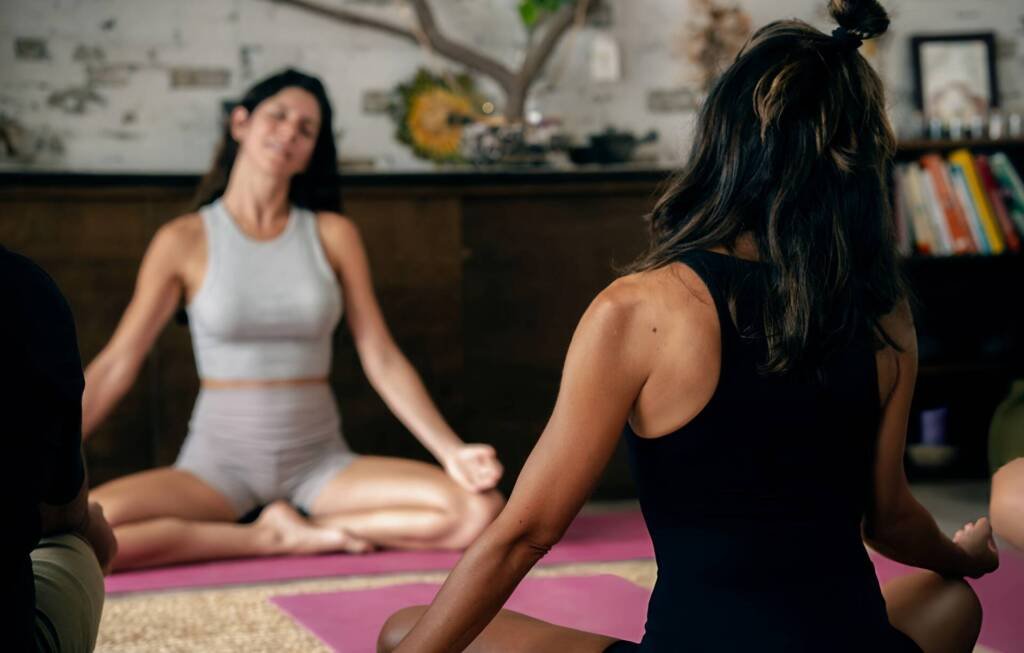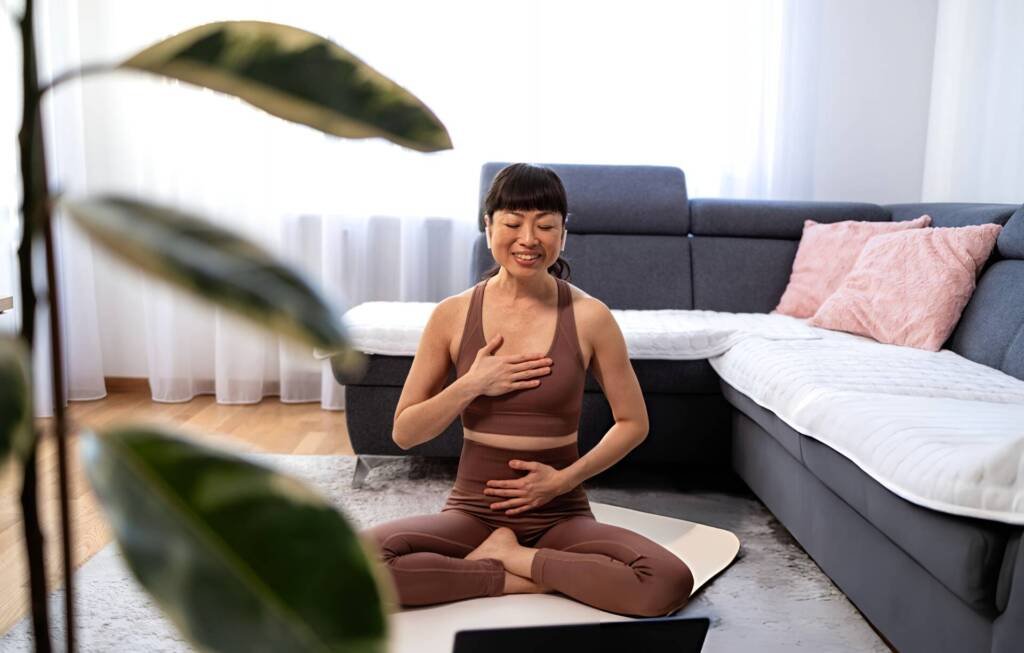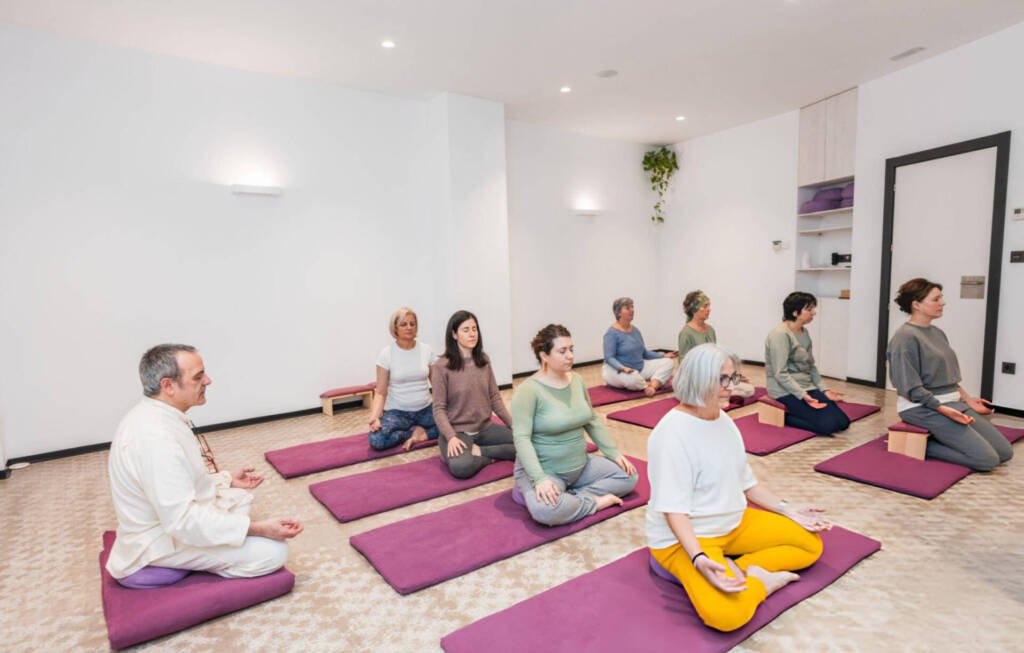You guide others toward peace, but are you truly at peace yourself?
As a meditation teacher, your role often revolves around creating calm and balance for your students. You hold space for their challenges, guide them through mindfulness practices, and help them unlock clarity during moments of chaos. You are their anchor, a source of calm in a fast-paced world. But in the pursuit of supporting others, it’s easy to overlook your own well-being.
Burnout can quietly affect even the most experienced meditation teachers. Constantly supporting others can leave you emotionally drained, impacting your focus, energy, and the joy of your personal practice. If your meditation feels disconnected or it’s hard to recharge, you’re not alone. Many teachers struggle to balance guiding others with their own mental and emotional needs.
Table of Contents
This guide is here to help. Together, we’ll explore why self-care is essential for meditation teachers and how it can reinvigorate your practice and your teaching. By integrating actionable self-care strategies, you can refill your own well of calm, ensuring that you not only support others but also sustain your own inner peace and balance. After all, thriving in your role starts with nurturing yourself first.
Why Meditation Teachers Need Self-Care Practices

The Emotional Demands of Guiding Others
Being a meditation teacher is a deeply fulfilling and rewarding role, but it’s also emotionally demanding. You’re not just leading a practice; you’re creating and holding a safe space for people to explore and process their emotions, navigate stress, and sometimes confront deep-seated trauma.
This requires more than just guiding meditation techniques—it calls for a high level of empathy, patience, and unwavering focus to be fully present for others. Over time, this deep connection to others’ emotional journeys can take a toll on one’s own mental and emotional well-being if one doesn’t prioritize self-care.
Think of it this way: You can’t pour from an empty cup. Much like the participants you guide, you also need time to replenish your energy, recharge your emotional reserves, and find balance. Without this intentional effort, your ability to show up authentically and effectively for others may diminish. Taking care of yourself isn’t just beneficial for you—it’s a vital part of being the best teacher and support system you can be for those who rely on you.
The Impact of Self-Care on Teaching Effectiveness

Prioritizing self-care is essential for staying sharp and present in your teaching practice. Studies have shown that individuals in caregiving or mentorship roles are more effective when they invest in personal well-being. For meditation teachers, this means maintaining your inner balance to serve your students better.
By creating space for self-care, you can ensure:
- Consistent energy levels to lead your classes with enthusiasm and presence
- Emotional resilience to navigate challenges and hold space for your student’s needs
- A deeper, more authentic connection with your students and the teachings you share
- The ability to model mindfulness and balance shows your students the value of integrating self-care into their lives.
The Bare Essentials of Self-Care

Self-care isn’t all bubble baths and spa days—it’s a deliberate effort to nurture your emotional, mental, and physical well-being. For meditation teachers, it’s about cultivating habits that restore your sense of balance.
Accessible Self-Care Practices for Meditation Teachers
Still, trying to figure out where to start? Here are a few easy, effective practices to help you prioritize your well-being and create balance in your life:
- Journaling: Spend a few minutes each day writing down your thoughts, feelings, or experiences. Reflecting on your day or your practice can help you process emotions, gain clarity on challenges, and track your personal growth over time. It doesn’t need to be perfect—write whatever comes to mind.
- Mindful Breaks: Take intentional pauses to reset and recharge throughout your day. Dedicate 5–10 minutes to breathwork, focusing on deep, slow breaths to calm your mind and body. These mindful moments can reduce stress, increase focus, and help you feel more grounded, even during a busy schedule.
- Saying “No”: Practice the art of declining commitments that might overstretch your time and energy. Overcommitting can lead to burnout, so saying “no” when needed is an essential act of self-care. Protecting your boundaries allows you to dedicate time to what truly matters, whether it’s your personal goals, loved ones, or simply resting.
Physical Health as the Foundation

Your emotional and mental well-being is deeply connected to your physical health. Taking care of your body can help you feel more balanced and resilient in all areas of life. Ensure you’re prioritizing the following:
- Adequate Sleep: Quality rest is essential for recharging your energy, improving focus, and maintaining a positive outlook. Aim for 7-9 hours of uninterrupted sleep each night and create a calming bedtime routine to help your body wind down.
- Balanced Nutrition: Choose whole, nutrient-dense foods that nourish both your body and brain. Incorporate a variety of fruits, vegetables, lean proteins, and healthy fats into your meals to promote sustained energy and emotional stability. Staying hydrated is just as important, so remember to drink plenty of water.
- Movement: Regular physical activity releases endorphins, which can reduce stress and improve your mood. Whether it’s a calming yoga session, a brisk walk in nature, or a favorite workout, find movement that brings you joy and keeps you motivated. A little activity each day can make a big difference.
Recognizing the Signs You’re Drifting from Center

Even the most experienced meditation teachers can lose their balance. Teaching others to find peace and clarity is a rewarding journey, but it can also take a toll on your own energy and emotional well-being. That’s why it’s crucial to recognize the red flags of burnout or emotional fatigue early before they begin to affect both you and your students.
Common Signs of Imbalance
- Feeling emotionally drained after classes or sessions, as if you’re giving more than you’re replenishing.
- Are you struggling to focus during your meditations, finding it hard to quiet your thoughts, or reconnect with your inner stillness?
- Losing joy or passion for teaching, where your sessions start to feel routine or uninspired rather than fulfilling.
- Increased irritability or fatigue, both physical and mental, even after rest or downtime.
When you notice these signs, treat them as cues to pause and refocus on your self-care practices. This may mean taking time for longer meditations, exploring new techniques, or stepping back to rest. Remember, awareness is always the first step toward realignment.
Building a Sustainable Self-Care Practice in 6 Steps

The key to self-care is sustainability—it needs to be something you can manage regularly and integrate into your life consistently to make a genuine difference. It’s not about grand gestures or occasional indulgences but relatively small, intentional habits that you can maintain over time. Here’s how to create a practice that not only works for you but lasts in the long run:
1. Reflect on Your Current Routine
Ask yourself, “When was the last time I did something just for me?” In the hustle and bustle of daily life, it’s easy to lose sight of our own needs. Take a moment to evaluate your priorities and reflect on how much time you dedicate to yourself. Look for areas where you can create space for self-care, whether it’s enjoying a quiet moment with a book, going for a walk, or simply taking time to relax and recharge. Prioritizing yourself isn’t selfish—it’s essential for your well-being.
2. Set Boundaries
Protecting your energy is essential for maintaining your well-being and productivity, and one of the best ways to do this is by setting clear boundaries. It’s perfectly okay to say no to overcommitments or requests that don’t align with your capacity or priorities. Learning to communicate your limits in a respectful yet firm manner can help you avoid burnout and focus on what truly matters to you. Here are a couple of example phrases to help you decline gracefully:
- “Thank you so much for thinking of me, but I can’t take on more right now. I hope you understand.”
- “I’d love to help, but my schedule is full at the moment. Perhaps I can support in a different way later on.”
3. Create a Daily Ritual
Start each day with a simple ritual to set a positive tone, whether it’s 10 minutes of mindful breathwork, writing down three things you’re grateful for in a journal, or easing into the morning with gentle stretching. These small, intentional habits help ground you before diving into the day’s demands. Remember, consistency matters more than complexity—what you do regularly has the most significant impact over time.
4. Stay Connected to Your Personal Practice
You guide others in meditation, helping them find clarity and peace, but it’s equally essential to maintain your own personal practice to stay grounded and connected. Taking time for yourself enhances your well-being and deepens your ability to support others. Experiment with different meditation styles—whether mindfulness, loving-kindness, or body scans—to keep your experience fresh, engaging, and aligned with your evolving needs.
5. Identify Your “Non-Negotiables”
Figure out what practices restore you the most, whether it’s a weekly yoga class to stretch and relax your body, quiet time in nature to recharge and reconnect, or an evening journal entry to process your thoughts and clear your mind. Reflect on what truly helps you feel grounded and at peace, and make these activities a non-negotiable part of your routine. Prioritizing self-care allows you to show up as your best self in all areas of life.
6. Celebrate Progress, Not Perfection
Acknowledge your efforts, even if they seem small, because every step forward matters. Take time to celebrate milestones, whether it’s completing a big project or simply getting through a challenging day. Remind yourself of your worth and the value you bring to others with affirmations like, “I deserve the care I give to others.” These small acts of recognition can help you stay motivated and build a stronger sense of self-appreciation over time.
Connecting with a Community of Like-Minded Teachers

Self-care doesn’t have to mean going it alone. While personal practices are essential, there’s incredible value in connecting with a supportive community of peers who truly understand the unique challenges and joys of teaching meditation. Building meaningful connections can help you stay inspired, share ideas, and feel less isolated in your journey.
Ways to Build a Community
- Join online groups or forums dedicated to meditation teachers: These spaces allow you to connect with teachers from all over the world, share experiences, and gain fresh perspectives on your teaching practice.
- Attend workshops or retreats aimed at teacher renewal: Immersive experiences such as retreats can help recharge your energy, deepen your practice, and foster in-person connections with others who share your passion.
- Participate in professional associations that offer resources and networking opportunities: Many organizations designed for meditation professionals provide access to tools, ongoing education, and support networks to help you grow both personally and professionally.
Surrounding yourself with like-minded people not only fosters a sense of belonging but also provides encouragement, valuable insights, and accountability to help you stay consistent with your self-care goals. Remember, nurturing your well-being isn’t just beneficial for you—it directly impacts the quality of your teaching and the experiences you create for your students.
How Will You Prioritize Your Well-Being Today?

As a meditation teacher, your role is deeply impactful, guiding others toward balance and clarity. But your ability to teach starts with your own well-being. Prioritizing self-care isn’t selfish—it’s essential for teaching authentically and sustainably, ensuring you can continue to make a difference.
What’s one small step you can take for self-care today? It could be a 10-minute breathing exercise, a mindful walk in nature, or connecting with supportive peers for encouragement. Even small steps replenish your energy and strengthen your foundation.
Looking for more ways to nurture yourself? Check out our resources on mindfulness and self-care for teachers. From guided meditations to wellness tips, these tools are here to support you as you help others. Your well-being matters—not just for you but for the students you inspire daily. Caring for yourself creates the space to continue uplifting those around you.





